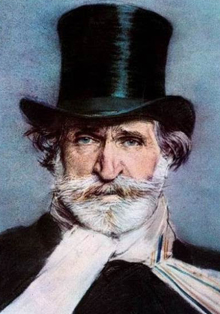Carlos Malamud
Senior Research Fellow at the Elcano Royal Institute
Latin America began its intense electoral cycle 2021-2024 (when all countries except Bolivia and Cuba will elect or re-elect their presidents, in addition to numerous other elections) marked by fragmentation, heterogeneity and uncertainty. These constants were once again present in the elections held in Ecuador, Peru and Bolivia on 11 April. Such was their importance and regional significance that some even spoke of an “electoral super Sunday”. And the reality of the results has been far above expectations.
Although these three elections were very different from each other (second round of presidential elections in Ecuador; first round of presidential and parliamentary elections in Peru; and second round of local and regional elections in Bolivia), it is possible to draw some preliminary common conclusions, starting with the impact of the punishment vote, the angry vote or the angry vote in such a volatile situation, marked by the terrible effects of the pandemic (economic, social and even political), corruption and poor government management of the crisis, especially on the health front. There is undoubtedly a strong anti-elitist sentiment to be found in this behaviour, fuelled by the feeling that those who govern, regardless of their political colour, do so for their own benefit and not in the general interest.
Beyond the specific considerations that can be made about each election and its strictly national repercussions, it is possible to analyse the results of Sunday 11 from a regional, Latin American perspective. The first thing to remember is that many leaders, who until yesterday called themselves Bolivarian, and today recognise themselves as progressive, have high expectations of regaining important areas of power.
However, many of these hopes have been dashed in view of the resounding verdict of the ballot boxes. Faith in the victory was so high that Evo Morales said: “If the people’s proposal wins in Ecuador and Peru, we will return to the integrationist project of the great homeland of Chávez, Néstor Kirchner, Lula and Correa, since Unasur will be reborn and CELAC will be strengthened, and with Runasur, which will integrate the peoples, a Plurinational America will emerge”. At the time, Morales totally discounted a large and broad victory for his candidates.
But in Ecuador, it was precisely Rafael Correa’s front man who was defeated. In Peru, Pedro Castillo, close to the Sendero Luminoso, and Keiko Fujimori will contest the ballot, while the candidate supported by the self-proclaimed progressive Puebla Group, Veronika Mendoza, came in sixth place, with less than 8% of the vote. In Bolivia, MAS was severely punished, and Morales assumed that of the four departments (provinces) in the race, they would probably lose in all of them and compared the current situation with 2006, when they had just come to power with very limited territorial control, although they later recovered to end up being hegemonic throughout the national geography.
The defeat of left-wing populism in Ecuador could be repeated in Peru, after an election that has once again demonstrated the total discredit of its political system. Of the 18 candidates vying for the presidency, not one of them received more than 20 per cent of the vote. Although the Peruvian reality is dominated by polarisation and political passions, it is impossible, as in Ecuador, to speak of a country divided into two irreconcilable halves, despite the fact that in the second round two antagonistic but equally populist options will face each other despite their opposing signs. Eleven parties will be present in Congress, which shows how fragmentation tends to undermine political and party systems.
The two Peruvian politicians on the ballot, Pedro Castillo and Keiko Fujimori, are among the leaders with the worst image in the country. That is why, for many voters, the decision of who to vote for will be very complicated. On 6 June, when the decisive presidential election takes place, they will have to choose between voting for a politician who combines the old ghosts associated with terrorism with an ultra-interventionist and statist agenda (Pedro Castillo) or for Alberto Fujimori’s daughter (Keiko), accused of corruption like her father, and who also summons up other ghosts, although in this case they are Fujimoristas, associated with the violation of human rights and wild enrichment. For this reason, many will go to the polls in the second round holding their noses, but unless there is a radical change in citizens’ behaviour, Castillo’s defeat emerges as the scenario with the best chance of materialising.






